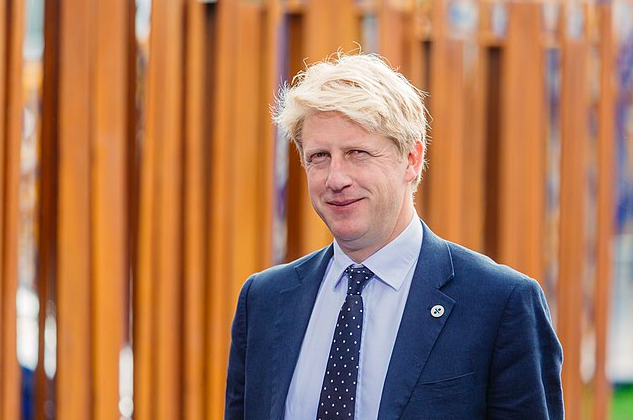It's no surprise that the Tory-led witch hunt over 'censorship' comes whilst our universities and students suffer a serious funding and access crisis.

Apparently attacks on free speech on campuses are so out of control that the universities minister, Jo Johnson, used an interview with The Times last week to threaten universities with closure if they “undermined” debate.
“Freedom of speech” is being “undermined” by institutions failing to “embrace healthy vigorous debate”, Mr Johnson said, adding: “our universities must open minds not close them”. The universities minister went on to threaten that institutions who failed to uphold free speech could be fined or deregistered.
At a time when students are struggling with growing levels of debt, a cost of living crisis and a BAME attainment gap, it’s bizarre that the universities minister chose to claim the real crisis in our universities is over free speech.
In a move completely ignoring a whole host of genuine issues facing higher education, Johnson instead warned that a university could be shut down if someone with racist views is not invited to an event or meeting.
This prioritisation will seem bizarre to anyone who has spent any time in a students’ union recently. They are places of lively, challenging debate, where censorship is extremely rare.
A piece of research from ChangeSU found, for example, that not one speaker has been banned from a university campus in the past year, despite the hysterical claims touted by the right-wing press and now Tory ministers.
If you ask students what the big issues in universities are, they will say things like finance, housing and teaching quality. Free speech is nowhere up there. So why are we still having this conversation?
To really test your commitment to free speech, you have to look at how you preserve the rights of those less powerful than yourself who you disagree with.
Is the government committed to preserving the free speech of those students who protest at talks by high profile speakers? Clearly not. Indeed, they are so opposed to protests that they are willing to fine universities for allowing them to go ahead.
It is clear that a commitment to free speech and open debate is not the real motive here — it’s about focusing on non-issues that distract from genuine problems facing our universities.
It’s a Lynton Crosby favourite, the dead cat manoeuvre: throw a dead cat on the table and everyone will talk about the cat instead of the issue that’s causing you grief. In this case, free speech is the cat and the real issue is the dire state of our education system.
We must move on. This attempt to hijack the media narrative has done little to quell the divisions between No.10 and the Department for Education on the issue of education funding.
This hypocritical farce of universities being forced to ‘protect free speech’ by policing the activities of students’ unions is nonsense. Vibrant debates happen on our campuses every day.
Students don’t have a problem with challenging ideas they don’t agree with, they have a problem with a government that does not recognise its failings around mounting debt, the cost of living and the racial disparities in our institutions. Perhaps the government should be more open to being challenged.
Amatey Doku is NUS Vice President for Higher Education. He tweets here.




4 Responses to “There’s no ‘free speech’ crisis in universities. The government are deflecting from the real issues”
Dave Roberts
The writer could try using some basic English skills with the title.
Mike Stallard
“mounting debt, the cost of living and the racial disparities in our institutions”
When I was at University, the talk was all about rowing (in my case), God, the Cold War, my next essay and, later on, who was going out with who. We got free tuition and food came with the College, I had lots of black friends – and I mean black, not brown – and nearly all my close friends had come from the local Grammar School.
Thanks to Mr Major and our Tony, this is now changed radically. So let me ask: what are universities for?
Fred
Amatey Doku, this article is simply wrong.
It’s not that speakers are “banned”. It’s that pressure is put on unwelcome speakers to withdraw their appearances. So of course SUs will say “we haven’t banned anyone”.
The way that “students challenge ideas they don’t agree with” is to protest against the proposed visit so angrily that the SU and the police tell the speaker that they really think it’s a good idea that the speaker does not attend, for their own and others’ safety, and the speaker voluntarily withdraws.
This is how students are closing down free speech. It’s happening all over the country.
It’s incredibly naive of you to think that the problem is as black and white as SU’s “banning” individuals or to think that a survey that asks that simplistic question is going to give a meaningful result. The problem is much more nuanced than that. Even academics at these institutions have published articles fearing for free speech at their institutions. Does this not tell you what’s really going on?
But don’t take my word for it. Conduct an experiment. Attempt to book a speech by England First or some other legal but controversial group at thirty academic institutions across the country and see what happens. You won’t find free speech and debate; you’ll find protests and threats.
I’d be interested in your response.
Dave Roberts
Fred, I’d be interested in his response as well but I think we’ll have a long wait.